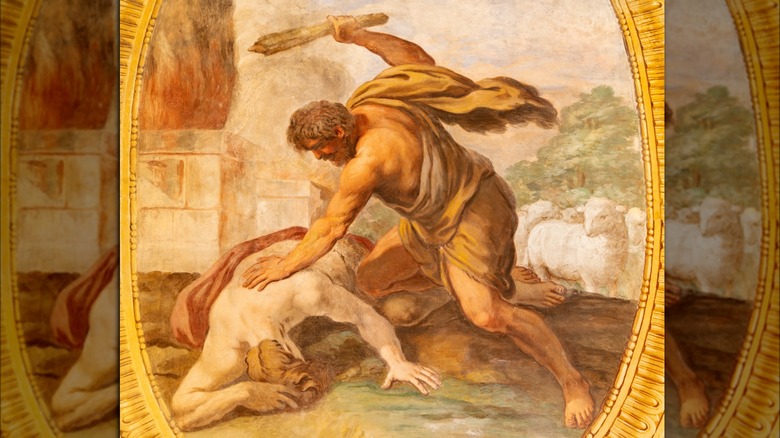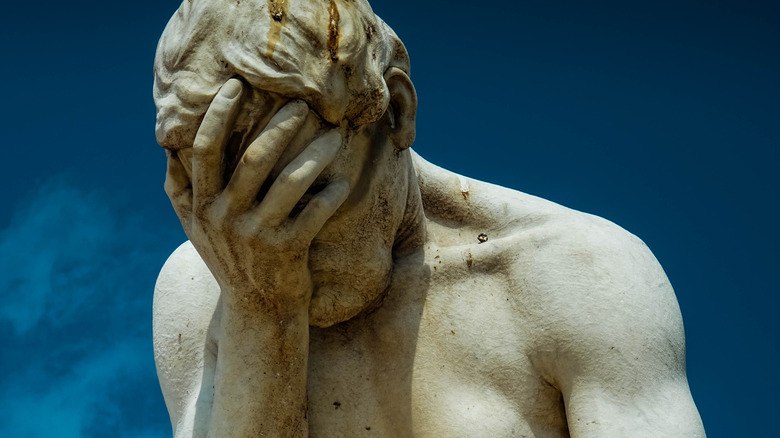The Truth About Cain And Abel's Feud In The Bible
Rivalry is common among siblings, and they typically make for funny stories as children grow up into adults. There are some cases, however, when the rivalry is carried into adulthood and results in dire circumstances. Such was the case with Cain and Abel, whose rivalry turned deadly.
Cain and Abel were brothers and the sons of Adam and Eve, and their story can be found in chapter 4 of the Book of Genesis in the Bible. Cain, the elder brother, was a farmer, while Abel was a shepherd who tended to the animals. One day, the brothers decided to give sacrifices to the Lord as a form of worship, per Bible Study Tools. While Cain offered some crops from the land he tilled, Abel's offering consisted of a firstborn sheep from his flock. It is said that the Lord favored Abel's offering more than Cain's, which led Cain to be enraged. Upon seeing Cain's reaction, the Lord said: "Why are you angry, and why has your countenance fallen? If you do well, will you not be accepted? And if you do not do well, sin is lurking at the door; its desire is for you, but you must master it," via Bible Gateway.
Cain kills Abel
Cain took out his anger on his brother Abel and killed him in the fields. When asked by the Lord of his brother's whereabouts, Cain answered, "I do not know; am I my brother's keeper?" per Bible Gateway. As punishment for killing his brother, Cain was banished and sent to the land of Nod — a place east of Eden — and a mark was placed on him so that those who encountered him wouldn't kill him.
The story of Cain and Abel is the second sin recorded in the Bible, with the first one being the original sin that Adam and Eve committed when they ate the forbidden fruit. While Adam and Eve's story displayed mankind's sin against God, Cain and Abel's tale displayed man's sin against another man, according to Christianity.com. There is no specific explanation as to why the Lord chose one brother's offering over another, but according to Zondervan Academic, it may be interpreted as Abel's sacrifice of firstborn sheep was of value to him. Comparatively, God already had Cain's crops in abundance, and therefore the offering might have been deemed insincere.

